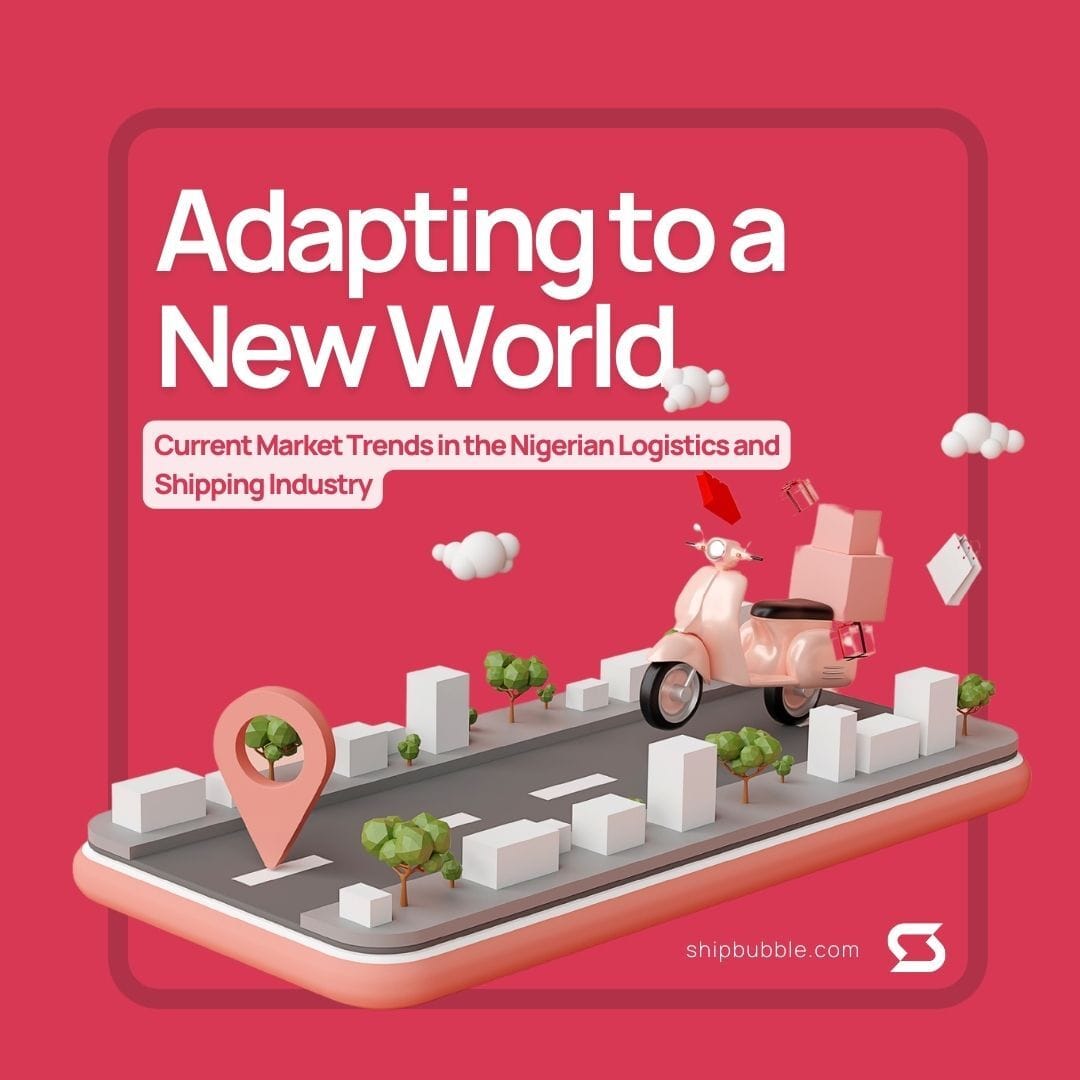The Nigerian logistics and shipping industry is undergoing a significant transformation, driven by a number of factors ranging from technological advancements to shifts in consumer behaviour. As businesses strive to stay ahead in this rapidly changing landscape, it is crucial to understand and adapt to the prevailing market trends. In this article, we delve into key insights into the current market trends in the Nigerian logistics and shipping sector and explore strategies for successfully navigating industry changes.
1. E-commerce Boom and Last-Mile Challenges:
One of the defining trends in Nigeria's logistics landscape is the explosive growth of e-commerce. With increased internet penetration, online shopping has become a mainstream activity. As a result, companies are grappling with last-mile delivery challenges. Adapting to this trend requires logistics providers to optimise their last-mile operations, invest in advanced tracking systems, and explore innovative solutions such as crowd shipping and drone deliveries.
More businesses will need to go digital and fully embrace the innovative solutions provided by delivery companies.
2. Infrastructure Improvements and Connectivity:
Infrastructure has long been a hurdle for logistics in Nigeria, but recent initiatives are gradually improving the situation. Investments in road networks, ports, and rail systems are enhancing connectivity. Successful adaptation involves leveraging these new systems to optimise transportation routes, reduce transit times, and enhance overall supply chain efficiency.
3. Technology Integration:
Technology is a game-changer in the logistics and shipping industry. From blockchain for transparent supply chains to artificial intelligence for route optimisation, companies are increasingly integrating tech solutions. Adapting to this trend requires embracing digital transformation, investing in robust logistics software, and leveraging data analytics to make informed decisions and enhance operational efficiency.
4. Sustainability and Green Logistics:
Sustainability is gaining prominence in global logistics, and although we are slower at it, Nigeria is no exception. Customers and merchants are increasingly conscious of the environmental impact of shipping and logistics operations. Adapting to this trend involves implementing eco-friendly practices, optimising routes to reduce carbon footprints, and exploring alternative energy sources for transportation.
We’ll get there eventually.
5. Regulatory Changes and Compliance:
One more thing that keeps evolving in Nigeria is regulations. Staying abreast of changes in regulations and ensuring compliance is crucial for businesses. Adapting involves establishing robust compliance management systems, staying informed about regulatory updates, and fostering proactive relationships with regulatory authorities.
6. Be Open to Collaboration
Gone are the days when one had to build every part of their business from scratch. It’s time-consuming and expensive. Work smarter by finding other businesses that offer solutions your customers need and partnering with them. That way, you have more value to offer to your customers, more profit for your business, and fewer resources spent.
7. Customer-Centric Services:
Customer expectations are also evolving, with a greater emphasis on convenience and personalised services. Logistics companies must adapt by offering real-time tracking, flexible delivery options, and excellent customer support. Utilising customer feedback and leveraging technology to enhance the overall customer experience is paramount.
Services like Shipbubble can help you with this. By signing up, you get access to over 40 logistics partners, real-time tracking for you and your customers, and a personalised branding page for your business as well.
The Nigerian logistics and shipping industry is in the midst of transformative changes. Navigating these changes successfully involves embracing technology, optimising operations, and staying attuned to market trends. By understanding and adapting to the current dynamics, businesses can position themselves for sustainable growth and resilience in this evolving industry.
Should you require assistance, feel free to reach out to us at hello@shipbubble.com or connect with us on X/Twitter and Instagram @shipbubble.





